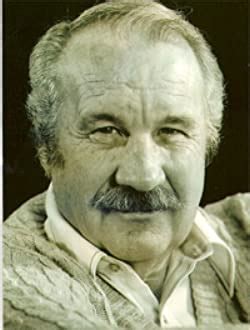A Quote by Christopher Hitchens
The fragility of love is what is most at stake here—humanity's most crucial three-word avowal is often uttered only to find itself suddenly embarrassing or orphaned or isolated or ill-timed—but strangely enough it can work better as a literal or reassuring statement than a transcendent or numinous or ecstatic one.
Related Quotes
Propaganda must not concern itself with what is best in man - the highest goals humanity sets for itself, its noblest and most precious feelings. Propaganda does not aim to elevate man, but to make him serve. It must therefore utilize the most common feelings, the most widespread ideas, the crudest patterns, and in so doing place itself on a very low level with regard to what it wants man to do and to what end. Hate, hunger, and pride make better levers of propaganda than do love or impartiality.
We know how to think. We know how to laugh. We know we're going to die, which gives us a lot to think about, and we have a need for, what I would call, "the transcendent" or "the numinous" or even "the ecstatic" that comes out in love and music, poetry, and landscape. I wouldn't trust anyone who didn't respond to things of that sort.
The Christian is more than an empty vessel. He has...Someone within. We have a treasure in the earthen vessel, and not only a treasure - a transcendent power! That is humanity as God intended it to be. The vessel is not much in itself, but it holds an inestimable treasure, beyond price, and a transcendent power, greater than any other power known to men.
The main interest of my work is not concerned with the treatment of neuroses but rather with the approach to the numinous. But the fact that the approach to the numinous is the real therapy, and inasmuch as you attain to the numinous experience you are released from the curse of pathology. Even the very disease takes on a numinous character.
I find most meetings are a waste of time, because they are so ill-prepared and there's little opportunity for true synergy in producing better solutions than what anyone originally thought of. So I work hard to only attend those meetings that have strategic importance and miss all kinds of other seemingly urgent meetings.
Isn't it grand, isn't it good, that language has only one word for everything we associate with love - from utter sanctity to the most fleshly lust? The result is perfect clarity in ambiguity, for love cannot be disembodied even in its most sanctified forms, nor is it without sanctity even at its most fleshly. Love is always simply itself, both as a subtle affirmation of life and as the highest passion; love is our sympathy with organic life.
Love begets wisdom, thus it is, as often misconceived, more than vain layers of tenderness; it is inherently rational and comprehensive of the problem within the problem: for instance, envy is one of the most excused sins in the media of political correctness. Those you find most attractive, or seem to have it all, are often some of the most insecure at heart, and that is because people assume that they do not need anything but defamation.
Data in our psychic program is often nonlinear, nonhierarchical, archaic, alive, and teeming with paradox. Simply booting up is a challenge, if not for no other reason than that most of us find acknowledging the unknowable and monitoring its intrusions upon the familiar and mundane more than a little embarrassing.


































